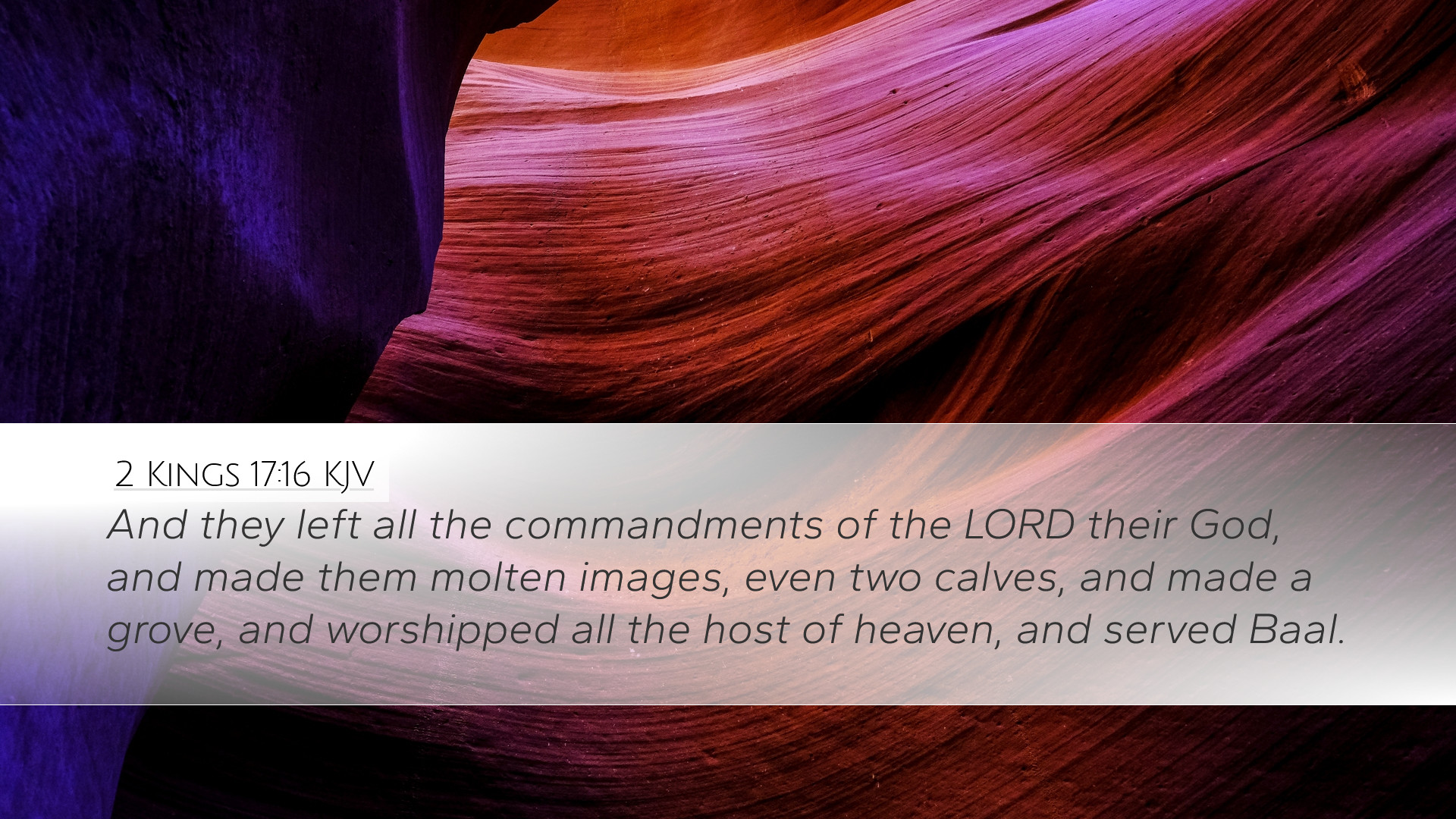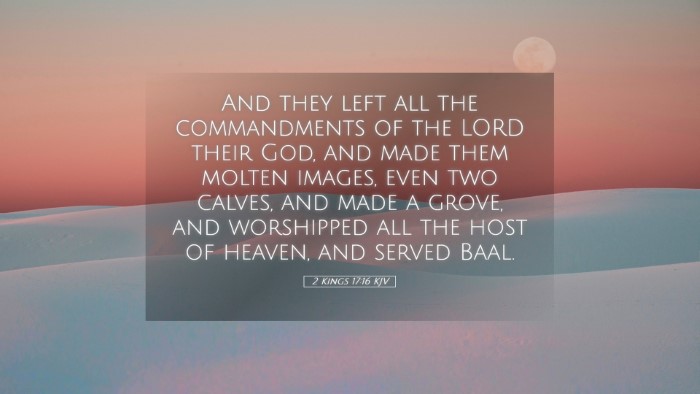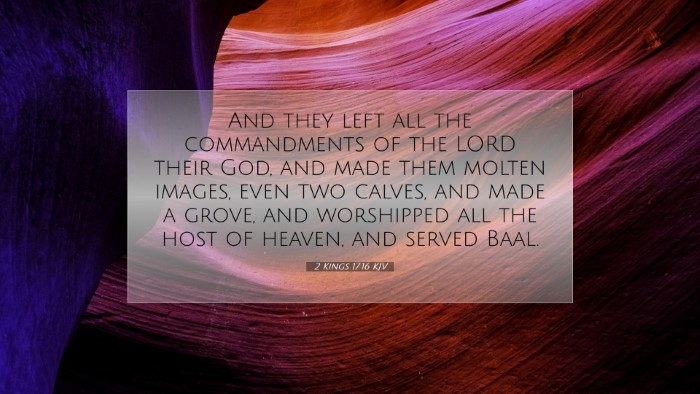Commentary on 2 Kings 17:16
Verse Reference: 2 Kings 17:16 (KJV) - "And they left all the commandments of the Lord their God, and made them molten images, even two calves, and made a grove, and worshipped all the host of heaven, and served Baal."
Introduction
This verse encapsulates a critical moment in the history of Israel, revealing their rejection of God’s commands and the tragic turn towards idolatry. This commentary aims to distill insights from notable public domain commentaries to explore the theological implications and historical context of this passage.
The Context of 2 Kings 17
2 Kings 17 documents the fall of Israel (the Northern Kingdom) to Assyria due to their persistent disobedience to God. The narrative illustrates the consequences of forsaking divine guidance, culminating in their exile and assimilation into foreign cultures.
Historical Background
Understanding 2 Kings 17 requires a grasp of Israel's tumultuous history, particularly the divided kingdom after Solomon's reign. The Northern Kingdom faced constant pressure from neighboring nations, leading to instability both politically and spiritually.
Analysis of Key Phrases
“They left all the commandments of the Lord”
This phrase indicates a complete abandonment of God's law. Matthew Henry notes that this departure was not gradual but rather a deliberate choice, reflecting deep-seated rebellion against God's covenant.
“Molten images, even two calves”
The "two calves" refer to the golden calves set up by Jeroboam (1 Kings 12:28), which served as a perverse innovation in worship. Adam Clarke emphasizes the irony in choosing tangible idols that failed to represent the holiness of God, paralleling their spiritual blindness.
“Made a grove”
The mention of a “grove” refers to Asherah poles, which were used in the worship of Canaanite deities. This reflects the syncretism present in Israel, as they amalgamated pagan practices with their own religious rites. Albert Barnes notes that this signifies not merely idolatry but a comprehensive rejection of Yahweh worship.
“Worshipped all the host of heaven”
The worship of heavenly bodies suggests a striving for understanding and control over their world through astrology and cosmic entities. This marks a severe deviation from the monotheistic worship that God demanded, indicating their hopeless searching for guidance beyond Yahweh, as noted by Henry.
“Served Baal”
Baal worship was prominent in Canaan and represented fertility and agricultural abundance. By serving Baal, the Israelites sought to secure blessings apart from God’s covenant. This reality emphasizes the spiritual delusion that leads people to forsake the true God for false idols.
Theological Implications
This verse serves as a theological warning about the perils of idolatry and spiritual unfaithfulness. The consequences of Israel's actions were dire—foreign conquest, exile, and loss of identity. This aligns with the biblical principle of sowing and reaping, illustrating that abandonment of God leads to destruction.
Rejection of Divine Authority
The abandonment of God’s commandments signifies a rejection of His authority over their lives. This highlights a recurring theme in Scripture where disobedience to God leads to chaos and suffering. The church today must contend with similar issues of cultural pressures that call for a departure from biblical truths, echoing the age-old struggle against idolatry in various forms.
Warning Against Spiritual Complacency
Henry warns against spiritual complacency, reminding believers that a passive attitude towards faith can lead to an insidious decline. This serves as a call to vigilance and an active commitment to adhering to God’s Word, lest they find themselves succumbing to modern-day idols be they materialism, secularism, or pleasure.
Conclusion
2 Kings 17:16 is a poignant reminder that turning away from God results in spiritual ruin. The insights gathered from Matthew Henry, Albert Barnes, and Adam Clarke reveal the dreadful consequences of Israel’s apostasy and serve as timeless principles for all who seek to follow God today. This passage implores us to examine our own lives to ensure that we are not repeating the sins of the past by allowing undue influences to corrupt our worship.


